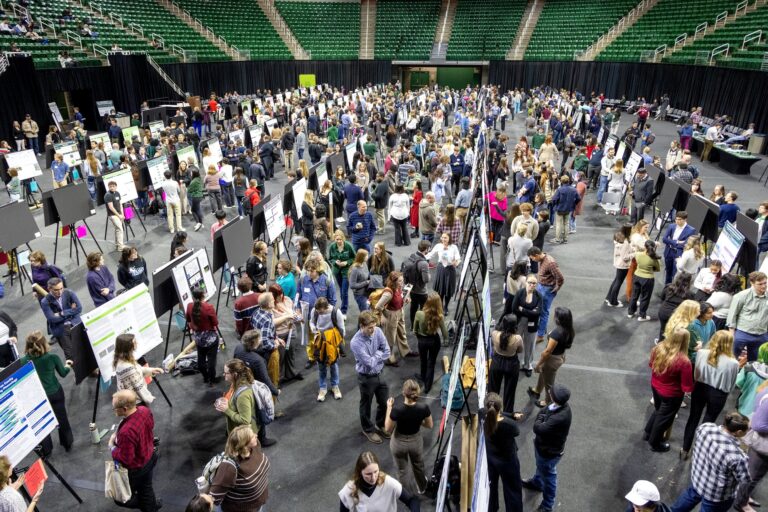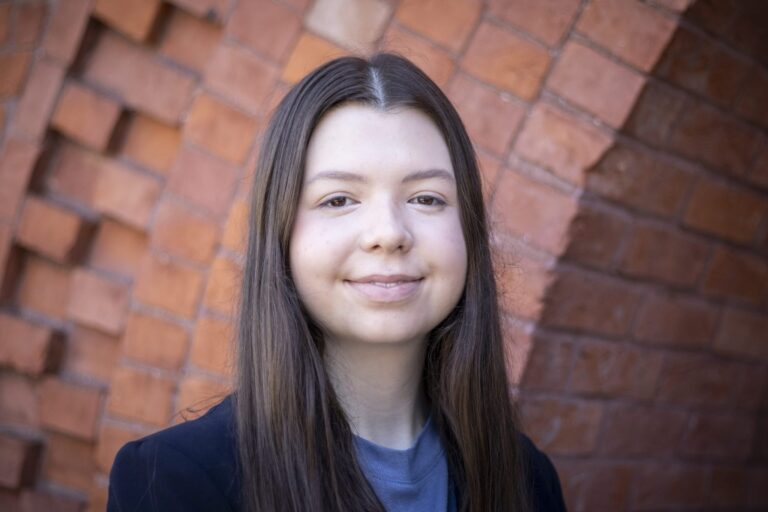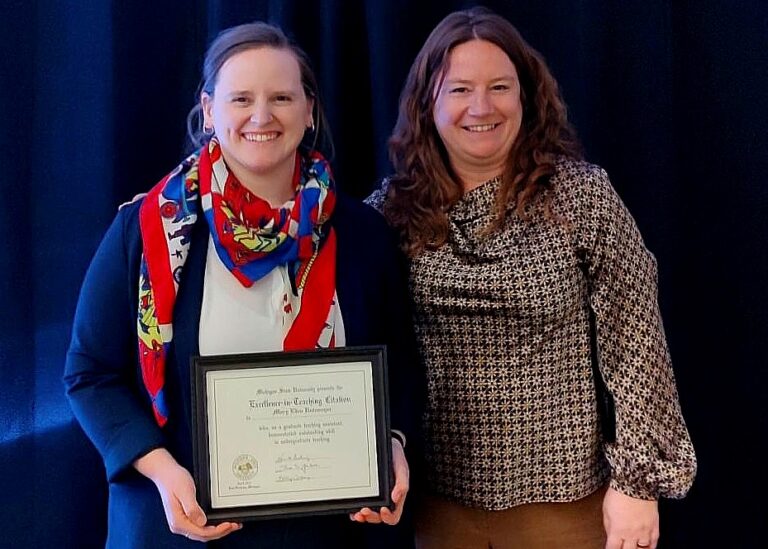
Several members of the Department of Linguistics, Languages, and Cultures are participating in an important initiative from the College of Arts and Letters that aims to help faculty to promote inclusivity and diversity in their teaching. Jonathan Choti (African Languages), Ayman Mohamed (Arabic), and Shannon Quinn (Russian) are participating in the group along with colleagues from other departments, and Katie McEwen (German) is serving as one of the group’s facilitators. Associate Dean Sonja Fritzsche, who is also Professor of German Studies, said that the Inclusive Pedagogy Fellows program was inspired by the CIEG-funded Accessibility Fellows program from several years ago. She said, “It is building a community of dedicated teacher scholars who value the whole student in the classroom. The Fellows themselves bring significant expertise to the table in their monthly meetings and also become subject resources for their department colleagues as well as in their own unique course projects. They are becoming intellectual leaders for the College in this essential area.”
The group, meeting monthly, has been discussing various ways of approaching inclusivity in their teaching. Some of the approaches include trauma-informed pedagogy, accessible pedagogies, Open Educational Resources, translingual and transcultural pedagogy, and intersectionality. Members of the group actively discuss how to integrate these ideas into their teaching and benefit from the experiences of people in other disciplines.
Katie McEwen, Assistant Professor of German, who is one of the facilitators of the group, said: “I first got involved with the Inclusive Pedagogy Initiative through the College Inclusive Practices Committee. It’s been a great experience to continue learning from colleagues, to see the diversity of approaches to inclusivity and how different disciplines ‘talk’ to one another. I’m particularly interested in how inclusive practices can help to facilitate a more student- and learning-centered space, where learners and educators are recognized as human beings first. The next piece I’d like to explore more is design justice.”
Ayman Mohamed, Assistant Professor of Arabic, connects the work of the Inclusive Pedagogy Fellows with his work on an Open Educational Resource – an open textbook for his Arabic classroom. He says: “The new reality in post-COVID education has revived conversations on implementing social justice and inclusive pedagogy, which is being advocated in the context of language education in terms of the curricular elements and the instructional choices that aid in fulfilling equity and inclusiveness in the classroom. One benefit that I am hoping to gain from the fellowship is the support to disseminate my work on open education in other venues and explore opportunities to establish leadership and more visibility in the field. One of the amazing features about open education is giving voice to students on their own curriculum as educators receive feedback and can conveniently modify and update their material at any moment. Working with colleagues in this inclusive pedagogy fellowship is already enhancing my understanding of the practice of inclusive pedagogy and how to strike the balance between students’ needs and expectations and learning objectives.”
Associate Professor of Russian Shannon Quinn was motivated to join the group in part because of the war in Ukraine and the desire to diversify representation in course curriculum. “Our students are very diverse, as are the cultures that we want them to learn about. I want to include more marginalized voices in my classroom and in my course curriculum. I am learning a lot about different ways to think about inclusivity and I appreciate the opportunity and space to discuss the ideas with my colleagues.”
Jonathan Choti, Assistant Professor of African Languages plans to complete a series of small projects in his courses related to the topics of discussion in the program. “The main goal of these mini projects is to infuse multiple, intersectional, diverse, and inclusive ways of knowing in the two curricula. I have already started to revise my curricula by offering a wider variety of ways for students to engage and contribute to the learning process. These include project-based learning, problem-based learning, group work, mini-lectures, and asynchronous videos and movies. I have learned the importance of multiple delivery points of course content, i.e., multiple formats and inclusive ways of communicating and assessing students. I have also learned skills and competencies on creating a “brave space”, establishing high classroom expectations and clear guidelines, strategies for difficult conversations or difficult moments, and consciously adopting inclusive language in teaching and course materials such as syllabi and Power Point slides. I have learned about trauma-based pedagogies, self-reflection, strategies for recognizing explicit and implicit biases, and equitable assessment of students.”
The Inclusive Pedagogy Fellows hope to participate with their colleagues from other departments in the Center for Teaching and Learning Innovation Spring 2023 Teaching and Learning Conference.


